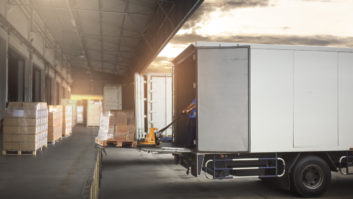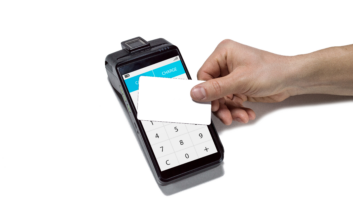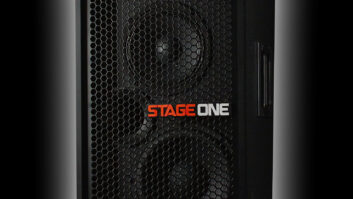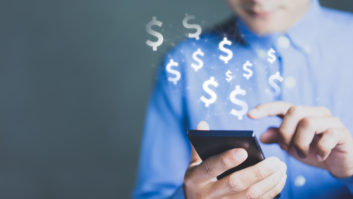Editor’s Note: Welcome to NewBay’s inaugural edition of Need to Know, where we explain complex topics and how they apply to each industry we serve, on our websites and in our magazines. Keep coming back for future topics, to include 5G, cybersecurity, artificial intelligence and more.
When you think of blockchain technology, you think of Bitcoin and all those other cryptocurrencies. But Bitcoin isn’t necessarily the next big wave in retail transactions. In fact, when it comes to the mass acceptance of virtual currency, we’re in the top of the first inning of a nine-inning game. It’s way too early to pass judgment on its future.
That being said, when you drill down into the blockchain technology that drives Bitcoin, potential for other uses become apparent. The promise to change the way consumers shop is the Holy Grail of that potential.
So after consulting with some data experts such as IBM, Accenture and Cognizant, a picture of a blockchain future in the retail world emerges. Following are six possible outcomes to the mass acceptance of blockchain technology as a shopping tool for consumers and a selling tool for retailers and manufacturers.
1. Trust
The convenience of online shopping captured a generation of consumers. And then came the hacks, and the data leaks, and the credit card fraud schemes, and some customers became reluctant to share confidential data online. Blockchain could be the answer to restoring that trust. What blockchain offers is a simple way for all transactions to be recorded in a way that does not rely on any of the participants in the transaction — the bank or credit card company, the retailer, the fulfillment facility, the shipper, or the shopper — to keep their own receipts of the transaction. There is one shared data set for all, eliminating the worry that anyone one of those transaction partners will expose sensitive information.
Blockchain applications can make it possible for those living in countries or markets that do not have a reliable finance or banking infrastructure to participate in the global economy.
2. Transparency
The shared data aspect of blockchain wil also dramatically affect the supply chain. If you’re a consumer who cares about the origin of the products you consume, blockchain can drive platforms that can verify that the food you are buying is non-GMO or organic, or the ring you received does not contain a “blood diamond” mined in a war zone by exploited workers, or the shrimp you bought was actually wild caught in Louisiana rather than farmed in Vietnam. It can create a level playing field for all the parties in a transaction: the supplier or manufacturer, the retailer, and the consumer.
3. Untapped Markets
Every single person on the planet has the potential to be a consumer. Blockchain applications can make it possible for those living in countries or markets that do not have a reliable finance or banking infrastructure to participate in the global economy. If you live in a war zone or a country with corrupt leadership, blockchain can allow you to bypass traditional payment methods or currency concerns and directly pay for products and services. The potential for online sellers to serve untapped or emerging markets could be a game-changer.
4. Fulfillment
With decentralized blockchain technology, the logistics that bog down fulfillment and shipping companies can be practically eliminated, focusing a greater percentage of the company’s human and computing assets on the actual filling of orders, inventory management, and shipping and delivery of goods. All communications between parties would be direct and instantaneous, making returns, refunds, and replacement orders infinitely simpler.
Proof of purchase is a chore, but blockchain would take care of that by decentralizing record-keeping so each transaction party can instantly access a digital proof of purchase.
5. Inventory Validation
When it comes to counterfeit goods, there are no winners. The consumers lose because they are paying more for an inferior product. The retailer loses loyal customers who are disappointed with the product they bought, and the legitimate manufacturer suffers a blow to its reputation and a loss of sales. Blockchain has the potential to completely eliminate the criminal element in the retail supply chain.
6. Warranties and Service Contracts
Do you keep a record of every purchase you make and save it forever? That’s basically what most returns, warranties, and service contracts demand. Proof of purchase is a chore, but blockchain would take care of that by decentralizing record-keeping so each transaction party can instantly access a digital proof of purchase. This enhances customer loyalty and creates efficiency in the warranty and service business — perhaps by driving down prices and convincing more consumers to consider extended warranty purchases.
The potential for a seamless network of information flowing between manufacturers, OEM suppliers, retailers, retail service companies, financial service providers, and consumers is the embodiment of the potential of big data to solve everyday problems. While blockchain technology is a dense subject, the practical applications can help tear down the walls between small startup vendors, mom-and-pop retailers, and the Sonys, Samsungs, and Amazons of the technology retail world. It’s time for the industry to embrace it.
Need to Know More?
Have a burning question about blockchain — or maybe request for a different topic you’d like to see us tackle? Email us at [email protected] and we’ll put our top minds on it!
Need to Know Blockchain: Other Industries:
- Blockchain and Media [Multichannel News]
- Blockchain and Video Production [Creative Planet Network]
- Blockchain and Television [TV Technology]
- Blockchain and Radio [Radio World]
- Blockchain and AV [AVNetwork.com]
- Blockchain as a Platform [Sound & Video Contractor]
- Blockchain and Residential Integration [Residential Systems]
- Blockchain and Pro Audio [Pro Sound News]
- Blockchain and Education [Tech & Learning]













